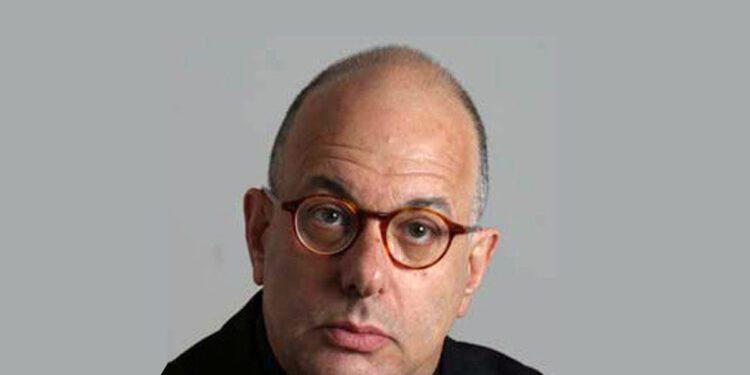Purpose and The Academy

Last month Bard College President and American Symphony Orchestra Conductor Leon Botstein sat down with me on The Caring Economy to discuss his career, higher education, and life’s purpose. For more than forty years he has stewarded Bard College to become one of the top liberal arts colleges in America, with a strong, progressive bent to deliver quality education to underserved communities, including former Soviet bloc countries, U.S. prisons, and teenagers in the inner cities of the U.S.
Botstein’s success since he arrived in 1975 at Bard’s six-hundred-acre, sylvan campus in New York’s Hudson Valley has been phenomenal. The 2,000+ student college has grown by every measure – the number of applicants, the number of dollars donated, the number of programs launched, the number of productions achieved, and the number of honors and accolades received.
For Bard,“institutional advancement” under Botstein has been measured by more than dollars. It is a school that does not focus on building its endowment or brand building (good luck finding a Bard t-shirt, bumper sticker or coffee mug!),but instead spends every dollar it earns on educating its students, Bard is the mouse that roared. Botstein and his institution do not obsess on money, they focus on education and leadership.
Our far-ranging session on The Caring Economy gives audiences a lovely introduction to a style of leadership that is often undervalued today. Botstein is neither boastful nor subtle. He does not seek the limelight nor waste a moment in it. He is pragmatic, informed by experience and education, and focused on the end game – how to provide quality higher education to the broadest possible demographic and thereby help create a more informed and engaged citizenry.
Early in our session I was reminded of another musical genius, Stephen Sondheim, and lyrics from his Into the Woods musical, where the Baker and Witch characters sing
Careful the things you say Children will listen Careful the things you do Children will see And learn
Botstein shared two particularly poignant observations of his parents’ role in raising their family. He noted: “My parents left, among other things, two very distinctive legacies with all of us. Number one:they never came home complaining about their work . . . people who come home and complain and moan about what’s happened in the office or about their coworkers, well their children will pick that up and as well as a jaundiced view of how unpleasant working is. The second thing is that they communicated a very high level of idealism. . . Whatever you do in the world you have to do for a purpose that is larger than profit or simply making yourself famous or satisfying some more-narrowly focused aspect of your ambition.”
Progressive institutions
When Botstein arrived at Bard in 1975, it was financially unstable. In collaboration with his board of trustees, the school examined its purpose and offerings to determine if Bard should stay the course (most likely meaning eventually closing) or take a more meaningful and risky tack. Bostein and his board asked themselves several important questions: “What needs doing? What is the right thing we should do? What is it that other people don’t do? What is it that the country needs?”
They concluded that offering quality liberal arts education to underserved communities was their way forward. And it turns out that there were lots of generous people andorganizations that were ready to support them in this ambition. Botstein noted: “We were able to raise the money against an idea: Higher education for incarcerated people. Higher education for inner city students where the system was failing them. Higher education in countries that don’t have access to quality higher education. Higher education for refugees. Higher education in support of arts that don’t make money.”
The most recent validation of this decision was a $1 billion challenge grant from billionaire financier and philanthropist George Soros. In April of 2021, Soros committed $500 million to the private liberal arts college, immediately recognized as a transformational gift that would be among the largest ever given to higher education in the United States.
“This is the most historic moment since the college’s founding in 1860,” said Botstein. Then in our interview last month, Botstein announced that the school has now raised the $500 million match. The money establishes a new $1 billion endowment that will support “the college’s full array of student financial aid, faculty, and program . . . and enable the college to sustain its mission and to grow its international profile.”
For his part, Soros said of his gift: “Bard has had an outsized impact, setting the standard in liberal arts education in prisons, in high school age students, and in the arts and in its international work.”
Shaping college minds
When I asked Botstein about shaping young college minds today versus over the past decades, he shared wonderful insights and an amusing tale of his mother being chided by the psychoanalyst Carl Jung in a seminar during her graduate study in Switzerland. He used the story to illustrate how criticism is delivered today. He stated: “We are in a different time where sensitivities are much higher, and we have to think twice about how we deliver criticism.” But he went on to say that overtime Bard students have gotten better and more energetically engaged in diverse debates — and more committed. He concludes: “The student body has been evermore impressive but there certainly is a shift in the way we use a position as teachers to educate and critique them.”
